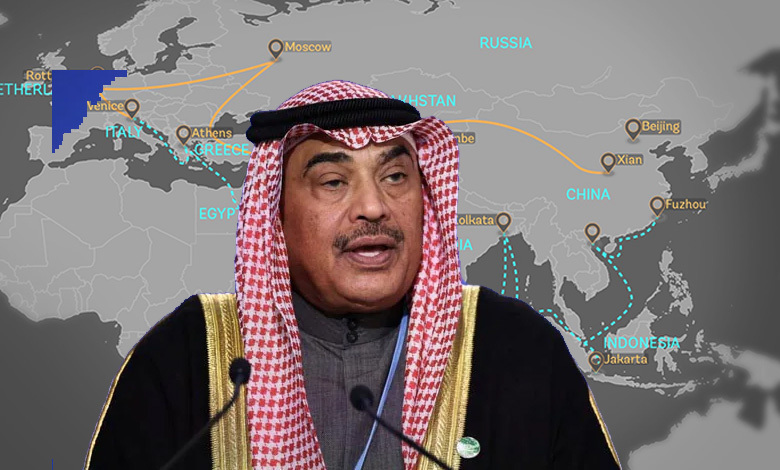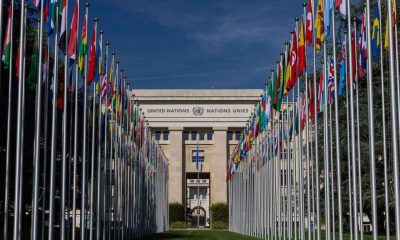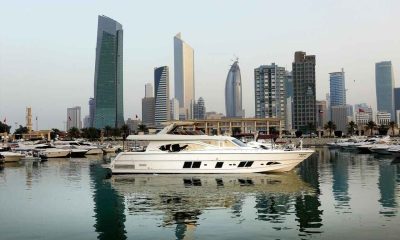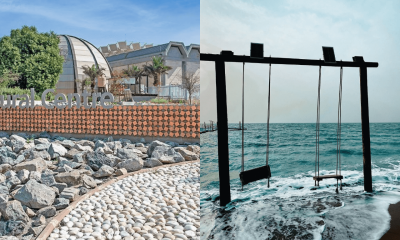Have you heard about the big announcement made by Kuwait on advancing the Belt and Road Initiative? Kuwait, a small country in the Gulf region, is making waves!
In the geopolitical context of today, relationships, equations, and power centers are changing rapidly. After COVID-19, the world is dealing with a lot of challenges and barriers. Although the term “Belt and Road” may not sound familiar, Kuwait views it as a significant shift in strategy.
The Belt and Road Initiative (BRI) is China’s ambitious plan to boost economic development and connectivity by reviving ancient trading routes through a network of infrastructure projects.
Kuwait’s significant participation in this endeavor is an interesting geopolitical growth that highlights its ambitions in regional and global regions.
Kuwait’s Big Geopolitical Play: Navigating the Belt and Road
On Thursday, Dr. Khaled Mahdi, Secretary-General of the Supreme Council for Planning and Development, said Kuwait was one of the first Middle Eastern countries to support the Belt and Road Initiative (BRI). Kuwait Vision 2035 includes logistical infrastructure development in the Northern Economic Zone, Silk City, and Kuwaiti islands.
The Secretary-General said this at the third BRI high-level forum in Beijing. Dr. Khaled Mahdi said that BRI’s main principles matched Kuwait Vision 2035 and its development plans and agendas, which is crucial for participating countries’ success.
Read More: Operation Spartan Shield: Strengthening Regional Security
He said building the infrastructure needed to connect the economies of the participating countries is a top priority to make the initiative successful and achieve its noble goals. He said this development is based on investing in aerial, land, and sea transportation infrastructure in participating countries, encouraging trade exchange, joint investment, and national development plans, and exchanging knowledge and experiences in innovation, creativity, and economics.
He added that His Highness the Crown Prince Sheikh Mishal Al-Ahmad Al-Jaber Al-Sabah met with Chinese President Xi Jinping last September and signed seven important agreements in marine and land infrastructure, renewable energy and waste management, green economy, and circular carbon economy.
Understand Kuwait’s Major Geopolitical Role:
Kuwait is a small but influential country in the Middle East and Gulf. Due to its geographic position, it plays a significant role in the geopolitics of the entire GCC. The nation is the top oil exporter in the world. However, there is a sense that its economy is diversifying and becoming less reliant on oil; all the oil kings are following suit by offering different approaches and making investments in distinct schemes. Kuwait has an opportunity to achieve this diversification through the Belt and Road Initiative (BRI).
What Is The Initiative For The Belt And Road?
Chinese President Xi Jinping announced the Belt and Road Initiative in 2013, to enhance infrastructure connectivity worldwide to support trade and economic growth. These routes go through the Gulf, Africa, Europe, and Asia.
There are two primary parts to this project:
- Silk Road Economic Belt
- Silk Road Maritime in 21st Century.
What Is The Belt And Road Initiative Of Interest To Kuwait?
Kuwait’s strategic interests coincide with the Belt and Road Initiative for several reasons.
Diversification of the economy is crucial, to start with. Kuwait’s economy is vulnerable to changes in oil prices due to its heavy reliance on oil exports. Kuwait can invest in non-oil sectors and lessen its economic vulnerability by cooperating with the BRI.
Second, Kuwait has a chance to improve its infrastructure thanks to this initiative. Ports and railroads are two examples of improved transportation and logistics infrastructure that can lower trade costs and accelerate economic growth. Furthermore, Kuwait can become a hub for regional trade thanks to its contemporary infrastructure.
Additionally, Kuwait’s energy security can be strengthened through the BRI. China has made significant investments in the Middle East as a result of its hunt for energy resources. Kuwait benefits from these investments in terms of both energy security and economic opportunities.
In What Ways Does Kuwait Benefit From This Move?
Being a part of the Belt and Road Initiative will benefit Kuwait greatly. Let’s discuss a few major advantages:
- Economic Diversification: By directing investments into industries like finance, tourism, and coordination, the Belt and Road help Kuwait become less dependent on its oil earnings.
- Improved Infrastructure: Kuwait can build ports, airports, and highways through Belt and Road projects, improving its regional connectivity and luring business travelers.
- Expanded Trade: Kuwait can increase trade with countries along the Belt and Road routes thanks to improved trade routes and connectivity.
- Energy Security: Kuwait’s oil and gas exports have a steady market thanks to China’s investments in the country’s energy sector.
How Does Kuwait’s Step Affect Gulf And International Geopolitics?
There are regional ramifications to Kuwait’s decision to join the Belt and Road Initiative. It will also affect the geopolitics of the Gulf. China will be able to close the gap and advance its increasing influence and presence in the area by one more step.
Following this, several Gulf countries might attempt to get closer to Kuwait and fortify their relations to profit from the BRI initiatives.
Global geopolitics may change as a result of this shift in emphasis from new alliances with Asian powers to old Western allies.
Kuwait’s participation in the Belt and Road Initiative is a critical strategic step.
Kuwait’s involvement in this project highlights the dynamic nature of international relations and international economic cooperation, regardless of whether it reaches its full potential or faces unanticipated obstacles.






















